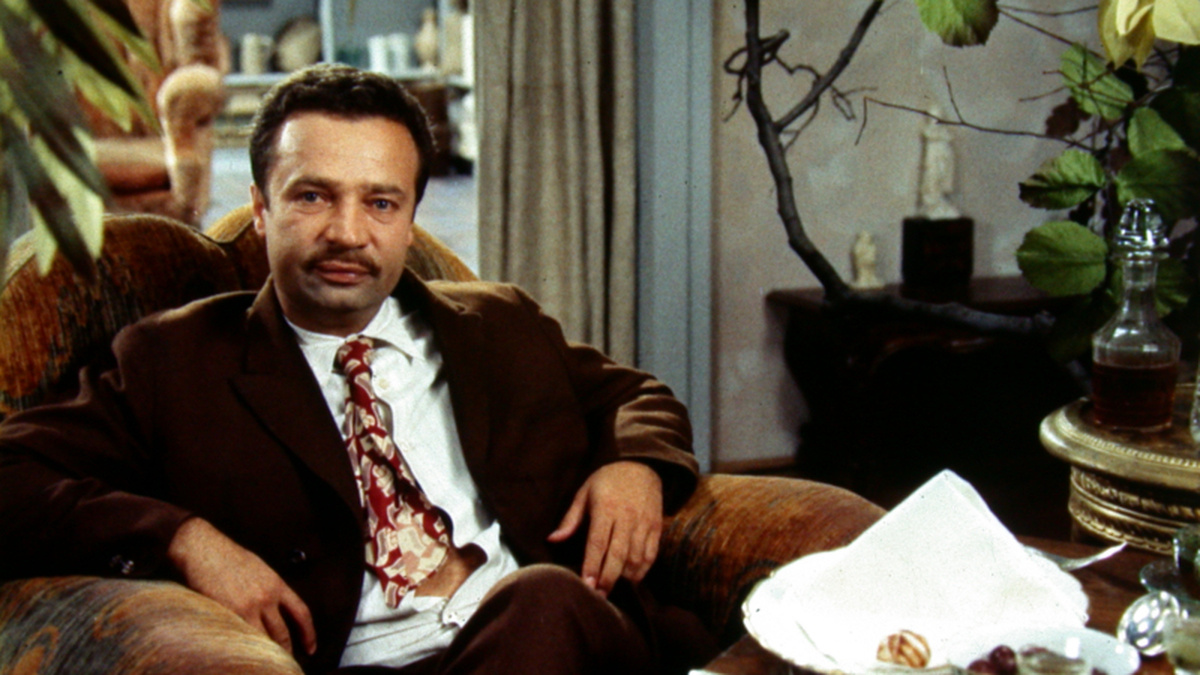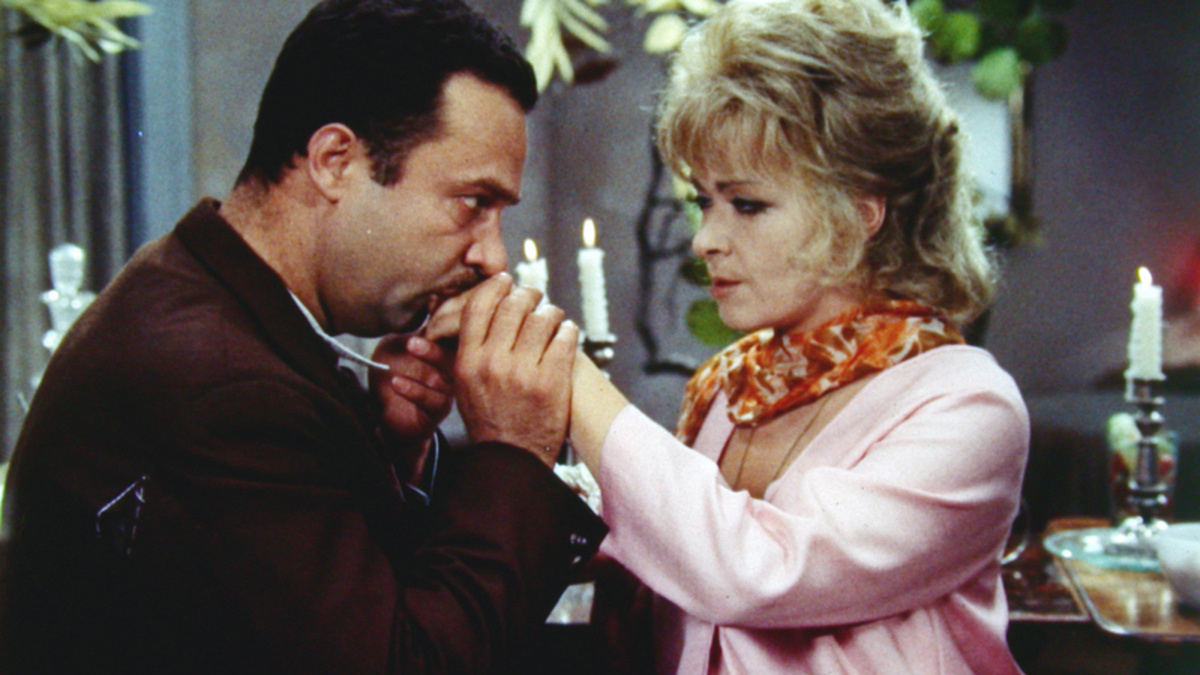The Murder of Mr. Devil + Diamonds of the Night | Ester Krumbachová Film Programme
Sat 26 January 2019


The Murder of Mr Devil n4t0
The Murder of Mr. Devil (CSR, 1970, 72 min)
Direction, story, production and costume design, text of the song: Yeti Ester Krumbachová
Screenplay: Ester Krumbachová and Jan Němec
Screenwriter and costume designer Ester Krumbachová entered the world of film directing just once, to create Vražda ing. Čerta (The Murder of Mr. Devil, 1970). The main reason why the highly original film remained her only motion picture was the cruel onslaught of post-1968 “normalisation” in the country. The author, who imbued numerous films of the Czechoslovak New Wave with a dynamic visual character through her visual designs, showed an affinity with the spirit of the 1960s through her scripts for Sedmikrásky (Daisies, 1966), Ovoce stromů rajských jíme (We Eat the Fruit of the Trees of Paradise, 1969) and Valerie a týden divů (Valerie’s Week of Wonders, 1970). With the help of veteran screenwriter Jan Němec, Krumbachová also penned the script for Vražda ing. Čerta. The film is a complete and mature debut that includes the period’s feminism, fortified with a peculiar form of sinister criticism with which Krumbachová targets both sexes, much as did another female director, Věra Chytilová. The nameless central character of the narrative, a pretty, clever and refined fortysomething, referred to simply as She, strives to escape her loneliness through an association with Bohouš Čert (whose surname means “Devil”), a friend from her youth. However, he is not as she had remembered him: the slim youth has become an overweight, ill-mannered man whose prominent trait is excessive voracity (closely followed by excessive garrulity). She endures Čert’s visits only by holding on to the vision of an eventual marriage to which she is willing to sacrifice her own dignity. When it emerges that the insatiable glutton – who can’t resist taking bites out of furniture legs – is indeed the devil himself, She is forced to do away with the interloper with the help of a bag of raisins… Though Krumbachová contributed to numerous highly intellectual films of the 1960s (before adding Faunovo velmi pozdní odpoledne [Faun's Delayed Afternoon], directed by Chytilová in 1983), her film is a mannerist play about the battle of the sexes, depicting with ornamental flourishes the incompatibility of men and women. The main characters are mere pieces on a chessboard, but they come alive through masterful acting by Jiřina Bohdalová and Vladimír Menšík.
She is approximately forty-years old, intelligent and attractive, but, unfortunately, lonesome as one could be. She handles her life quite well, but whenever nostalgia falls upon her, she begins to long for a man. Thus she is happy when an engineer named Bohouš Čert [Devil], a friend from her youth, whom she still recalls being as slim as a maiden, rings her up and talks to her in a coaxing voice. She invites him to dinner, which she prepares with the greatest care, and also pays a lot of attention to her looks. But, after all those years, Engineer Čert when he arrives is far from slim, and is even rather dilapidated. He gulps his food with constant smacking and slurping, and eats everything out of the fridge. His behaviour is rude, even arrogant - but, see, this is a Man and She gladly forgives him everything. Čert's visits begin to repeat, and although he behaves as an ill-mannered egoist, woman addresses him with great respect and admiration - still hoping that Mr Čert will eventually express himself and that it will finally come to the desired wedding. A fortune-teller She visits with her girlfriend Miriam warns her against the acquaintance and moreover foresees a mysterious sack of raisins in the cards. The insatiable wooer then gnaws at the legs of her stylish furniture, shows himself to be a real devil and begins to flirt with Miriam. She breaks up with him, captures him in a sack of raisins and gets immensely rich on their sale. Eventually, she decides to finance an expedition to find the yeti - since "the Abominable Snowman is better than no man".
–
Diamonds of the Night (CSR, 1964, 67 mins)
Direction: Jan Němec
Costume design: Ester Krumbachová
In winning the Grand Prix at the Mannheim-Heidelberg International Film Festival (IFFMH) in 1964, Jan Němec’s drama Démanty noci (Diamonds of the Night) became the first Czechoslovak New Wave film to receive an internationally recognised award. The motion picture, based on a short story from an eponymous book by Arnošt Lustig, started the brilliant career of one of the most original Czech filmmakers of the 1960s (Němec had adapted one other Lustig short story, Sousto (Mouthful), as a short film while graduating at Prague film school FAMU). Diamonds of the Night offers an unusual, intensely attitudinal insight into the topic of war. It tells the story of two young Jewish men who escape from a train taking them to their death. The film amounts to a naturalistic study of endangerment, repudiation and uprootedness. The experiences of the desperate refugees in the Sudetenland forest merge with the memories, dreams and visions of one of the men. Thus the anatomy of a tortured human soul is projected into the sphere of existential drama.
Second World War. Two young boys jump from a moving deportation train carrying Jews. The German guards shoot at them but the boys manage to reach the forest. They are exhausted, hungry, freezing cold and want to go home. In a fever, they are haunted by memories of their recent horrific past, images of events that never did and never will occur in reality, visions of returning home, which they never reach in their dreams. From their hiding place deep in the forest, they see a woman carrying food to her husband in the field. After she returns to the cottage, one of the fugitives goes to ask her for food. He wants to kill her to prevent her informing on them. The boy is given bread but cannot bring himself to harm the woman. The famished boys cannot swallow the food. The woman puts a scarf on her head and considers whether to inform on them or not. Armed old men from the village organize a manhunt and catch up with the exhausted boys. They celebrate their victory while the boys wait to see what will happen to them. Finally, the euphoric Germans let them go and the two young boys run off hoping they will reach their home after all.
Event Collection
Part of Ester
Details
2pm + 3:15pm, Free but ticketed, Cinema
15+
Book: The Murder of Mr Devil
Book: Diamonds of the Night